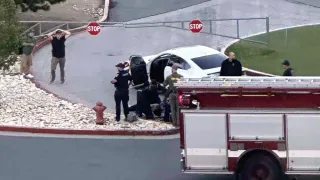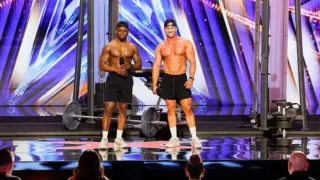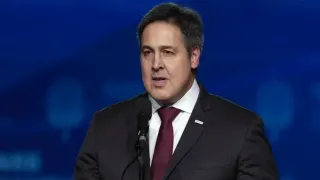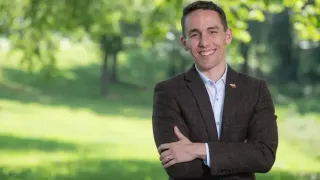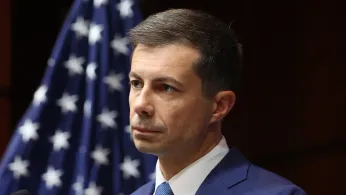
Jul 28
Pete Buttigieg Calls for Dialogue and Fairness as U.S. Olympic Committee Bars Trans Women from Women’s Sports
READ TIME: 3 MIN.
The U.S. Olympic and Paralympic Committee (USOPC) has issued a new policy effectively barring transgender women from participating in women’s sports at the Olympic level, citing an obligation to comply with a recent executive order issued by President Trump. The order, titled “Keeping Men Out of Women’s Sports” and signed in February, threatens to withdraw all federal funding from organizations that do not enforce the exclusion of transgender athletes from women’s sports categories. The USOPC communicated the change to national sports governing bodies, instructing them to bring their own policies into alignment with the new federal directive. The policy was quietly updated on the USOPC website and confirmed in an official letter sent to relevant organizations, emphasizing the need to ensure “fair and safe competition environments for women” and reiterating the committee’s legal obligations as a federally chartered body .
In the wake of the USOPC decision, former U.S. Secretary of Transportation Pete Buttigieg addressed the issue, calling for a respectful, evidence-based national dialogue. Buttigieg highlighted the importance of fairness in sports while also emphasizing the need to protect transgender people from discrimination and exclusion. He noted that the number of transgender student-athletes is extremely small, referencing a July 2025 GLAAD fact sheet reporting that fewer than 10 transgender student-athletes are competing among the NCAA’s 510,000 athletes. Buttigieg urged policymakers and the public not to lose sight of the real impact these policies have on individuals, particularly young transgender people who are already vulnerable to marginalization .
National LGBTQ+ advocacy organizations such as GLAAD and Athlete Ally have condemned the USOPC’s move, framing it as a step backward for transgender rights and inclusion in sports. Athlete Ally, in a public statement, described the ban as “an affront to the values of fairness and equality that the Olympic movement claims to represent,” and called on the USOPC to reconsider its stance and engage with transgender athletes in good faith dialogue .
The new policy has ignited strong reactions across the political spectrum. Democratic lawmakers have largely opposed legislation targeting transgender athletes, characterizing it as discriminatory and overbroad. Rep. Sarah Jacobs (D-Calif.), vice chair of the Congressional Equality Caucus, stated, “What’s unfair is the targeting of transgender kids and politicians abandoning them for political expediency.” Opposition to such bans has often focused on concerns that they foster an environment of suspicion and subject young athletes—especially transgender youth—to invasive scrutiny and potential harm .
California Governor Gavin Newsom’s recent comments on transgender athletes have also stirred controversy and debate within the Democratic Party, with LGBTQ+ lawmakers expressing disappointment and urging a return to principles of equality and justice for all athletes .
The USOPC’s decision comes amid a wave of similar restrictions at collegiate and state levels, as well as increased advocacy efforts from LGBTQ+ organizations during Pride Month. GLAAD’s “One Story. One Future.” campaign this June has called for unity and solidarity in defending the rights of LGBTQ+ people, highlighting the broader context of ongoing legislative attacks on transgender rights across the nation .
Advocates warn that such policies risk exacerbating mental health challenges faced by transgender youth, who are already at heightened risk of isolation and discrimination. They argue that sports provide a critical space for personal growth, community, and affirmation, and that blanket bans undermine these opportunities for transgender athletes. Supporters of the ban, meanwhile, cite concerns about competitive fairness and safety, though available data show that the actual number of transgender athletes competing remains exceedingly low .
As the U.S. heads into another contentious election season, the rights of transgender athletes remain at the forefront of both political discourse and LGBTQ+ advocacy. Buttigieg and other leaders continue to call for solutions that respect both fairness in competition and the dignity of transgender people. The USOPC has indicated that it will continue to consult with federal officials, athletes, and advocacy groups, leaving the door open for future policy adjustments. For now, the debate underscores the need for nuanced, inclusive dialogue and a recommitment to the values of equality and respect at every level of sport .

